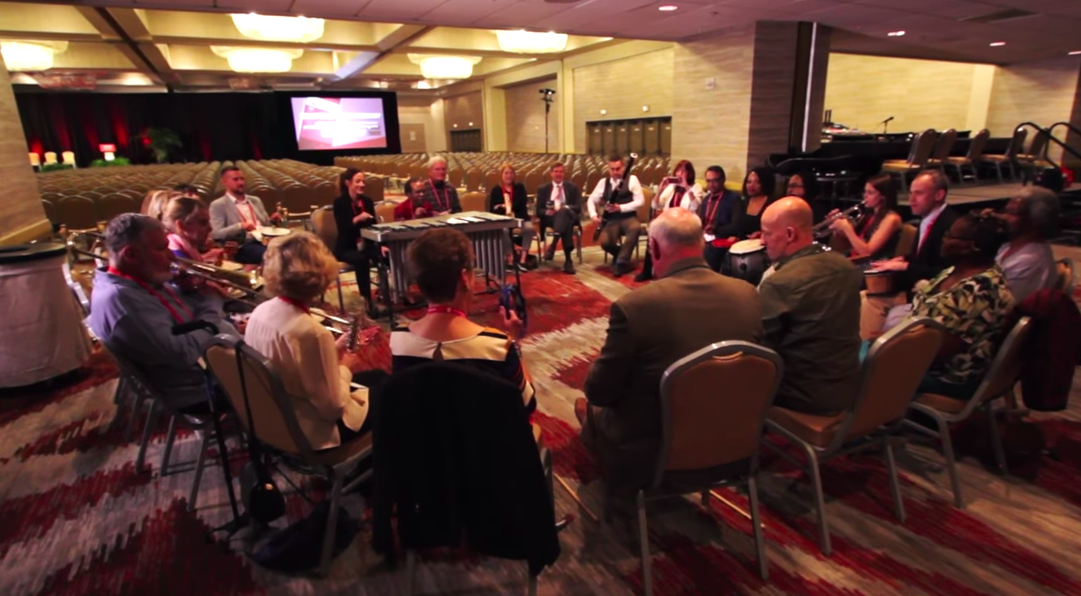The revolving door that leads to the lobby of Atlanta’s downtown Hilton Hotel is working overtime. One by one, they make their way into the lobby. As the crowd grows, there are many first time hellos, and even more ‘hello again’ hugs.
All of them are leaving an outside world, where things are so easy, where steps are hard fought, where most of them are still fighting.
It’s hard to believe that in a few minutes time, these dozen stroke patients from Emory Brain Health Center will be rehearsing with members of London’s world renowned Royal Philharmonic Orchestra. Instead of an orchestra, they will part of a newly formed, ‘Strokestra.’
As they take chairs in a large circle, conductor Doctor Tim Steiner explains, “I’m actually a doctor of music, which means I can fix music, but I can’t fix you back.” Laughter erupts. This a group accustomed to struggle, able to laugh at the dark truth of what they have endured.
They begin by shaking their hands and tapping drum sticks on the ballroom carpet, and then quickly are handed instruments and begin to play.
The Royal Philharmonic helped create Strokestra two years ago. The stroke rehab program uses music as therapy.
After an hour of rehearsal, the cacophony of competing sounds eventually gives way to something cohesive.
Sam and Patty Mankin will soon celebrate 50 years of marriage. It’s been over a year since she suffered a stroke at home. Sam admits, “I was scared to death.”
Their familiar banter shows how excited they are for today. Sam says, “She put out what I was going to wear.” She smiles at him. “You look really nice.” He smiles back. “Thank you so much.”
Alvin Dunlop looks blissed out as he taps his drum. Doctors didn’t know if he would survive his stroke. His wife Carol says, “I saw him today the look on his face. I hadn’t seen that in a long time.”
Debbie Bottner had to be convinced to come. “My dad said I couldn’t carry a tune across the street. They said you’re going to play with the Royal Philharmonic, I said ‘no. I don’t think so!’”
Emory Brain Health’s Dr. David Burke and Harvard’s Dr. Ron Hirschberg have dedicated their lives to restoring their patients’ health. Today, they’re shoulder to shoulder, members of the Strokestra.
Burke says, “People connect with music even in the darkest deepest moments. Music can connect with them.”
Dr. Hirschberg explains, “Neuroplasticity is the brain’s ability to change by experience. You can train the brain, and motor pathways can be activated through stimuli like rhythm.”
The big performance is tomorrow – nerves are beginning. Patty jokes, “I’ll probably shake, but I’ve got a tambourine!”
The next morning before a crowd of global rehabilitation experts, the Strokestra jam session begins. As hands struggle to drum and wrists work extra hard to shake, truth is on display, reminding us some things are lost, unable to be recovered. An even greater truth is that there is much that can be rediscovered – a sense of community, of pride, of joy.
Debbie says she would do it again, that the camaraderie of playing with fellow stroke patients made this an unforgettable day. “We gain stuff from each other. We’re strong for each other.”


